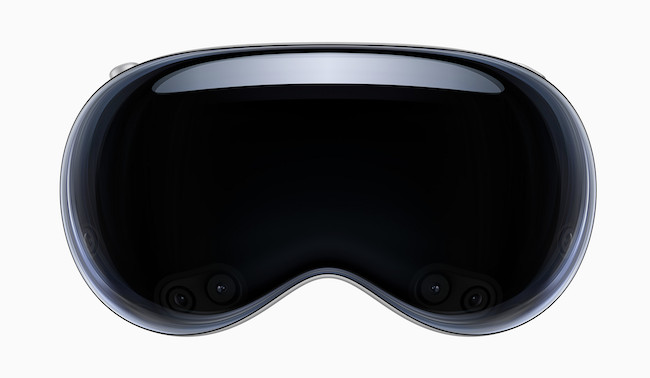So far VR hasn’t exactly taken off with Macs. Mainly this is due to a lack of compatibility between VR headsets and Mac and a lack of interest from developers.
The most Mac compatible VR headset is currently the Apple Vision Pro but at $3,499 it’s not exactly an option for most. Not to mention, there simply aren’t any games, and very few apps, that can be used with it on a Mac.
That’s where the Apple Vision Air may change things – Apple’s new, cheaper VR headset that will bring a more affordable VR headset to Mac users.
Contents
What is the Apple Vision Air?
So far, we don’t know that much but the Vision Air but rumors started circulating earlier this month after a supply-line specialist claimed that Apple is currently working on it.
The Vision Air is expected to be a mid-tier headset, announced as part of Apple’s multi-product XR strategy offering both high-end Pro and more accessible Air models.
Positioned between the Vision Pro and future AR glasses, it’s rumored to be potentially launching 2027 or later.
Weight & Design
- Rumoured to be 40% lighter than the current Vision Pro (~1.5 lbs), targeting around ~0.8 lbs.
- Construction will likely mix aluminium/plastic with titanium for key components (battery, connectors) for reduced weight.
- Initially being referred to as “thin and sleek,” with possible midnight blue finish instead of traditional silver.
Price & Target Market
- Aimed at the mainstream consumer, likely priced between $1,500–2,500, potentially as low as $1,500. This would make it less than half the price of the Vision Pro if true.
- Designed to broaden adoption beyond early adopters and justify Apple’s AR ambitions
Technical Limitations
- Displays: Likely use smaller, lower-resolution panels (2.1″ OLED or mini‑LED, 1,700 ppi vs. Vision Pro’s 3,400 ppi)
- Processor: May use an A-series chip (e.g., A18 Pro) instead of the Vision Pro’s M-series
- Sensors & Features: Could drop or simplify sensors, cameras, or the EyeSight outward display to save cost and space
- Audio & Comfort: Still expected to include built-in audio, but use lighter straps and weight distribution for better comfort .
Comparison Table
Bearing in mind these are still rumored specs and details, this is how the Vision Pro compares side-by-side with the Vision Air
| Feature | Vision Pro | Vision Air (rumored) |
|---|---|---|
| Weight | 1.5 lb | 0.8 lb (‑40 %) |
| Display | Micro-OLED @3.4 k ppi | OLED/mini‑LED ~1.7 k ppi |
| Chipset | M-series (M2/M5) | A-series (e.g., A18 Pro) |
| Sensors & Features | Full set incl. EyeSight | Reduced/streamlined |
| Price | $3,499 | $1,500–2,500 |
| Launch Window | 2024 (current) + 2025 refresh | From 2027 on |
At the moment, the details are tantalizingly vague but if rumors are to be believed, Mac users mayu finally end-up with a mass-market VR headset that offers 100% compatibility with macOS.


